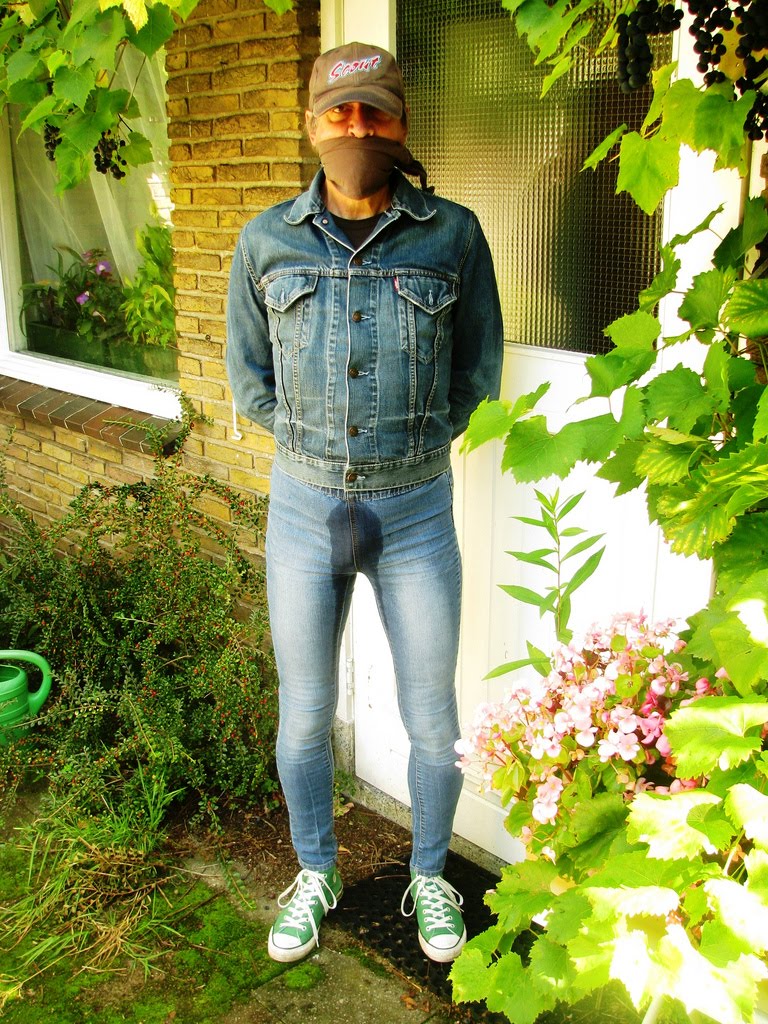Understanding The Hopelessness Of Male Urination: Causes, Effects And Solutions
Male pee desperation is a topic that often goes unspoken, yet it affects many men across different age groups and backgrounds. This phenomenon can lead to discomfort, anxiety, and even embarrassment, making it essential to understand its causes and how to manage it effectively. In this article, we will delve deep into male pee desperation, exploring its psychological and physiological aspects, and provide practical tips for relief.
As we navigate through this sensitive subject, we aim to shed light on the factors contributing to this condition, from lifestyle choices to medical issues. Moreover, we will discuss the potential impact of pee desperation on daily life and relationships, offering insights into how men can cope with these situations. By the end of this article, readers will be equipped with knowledge and strategies to handle pee desperation more effectively.
So, whether you’re experiencing this issue yourself or seeking to understand it better for someone you know, join us as we explore the complexities of male pee desperation. This comprehensive guide will provide valuable information, ensuring that you are not alone in facing this challenge.
Table of Contents
- What is Male Pee Desperation?
- Causes of Male Pee Desperation
- Psychological Aspects
- Physiological Aspects
- Effects on Daily Life
- Coping Strategies
- When to Seek Help
- Conclusion
What is Male Pee Desperation?
Male pee desperation refers to the intense urgency to urinate that can occur in various circumstances. This condition may arise suddenly, leaving men feeling anxious and uncomfortable. The sensation often manifests physically, creating pressure in the bladder and leading to a feeling of being unable to wait to relieve oneself.
Understanding this condition is critical, as it can sometimes be indicative of underlying health issues. Recognizing the signs and symptoms of male pee desperation can help individuals seek timely intervention when necessary.
Causes of Male Pee Desperation
There are several factors that can contribute to male pee desperation, including:
- Dehydration: Insufficient fluid intake can lead to concentrated urine, causing more frequent urges to urinate.
- Diet: Consuming diuretic foods and beverages, such as caffeine and alcohol, can increase urine production.
- Medical Conditions: Certain health issues, such as urinary tract infections (UTIs), prostate problems, or diabetes, can influence urination patterns.
- Medications: Some medications, especially diuretics, can lead to increased urination.
Understanding Dehydration
Dehydration can occur due to various reasons, such as excessive sweating, illness, or inadequate fluid intake. Recognizing the signs of dehydration, such as dark urine and dry mouth, can help prevent male pee desperation.
The Role of Diet
Diet plays a significant role in urinary health. Men should be mindful of their consumption of diuretics and ensure they maintain a balanced diet to support their urinary function.
Psychological Aspects
Psychological factors can significantly influence the experience of male pee desperation. Anxiety and stress can exacerbate the urgency to urinate, creating a vicious cycle of fear and discomfort.
Moreover, men may feel embarrassed about their situation, which can further heighten their anxiety levels. Understanding these psychological aspects is crucial for developing effective coping strategies.
Physiological Aspects
From a physiological standpoint, the bladder's capacity and the body’s response to signals can vary among individuals, impacting the experience of pee desperation. Factors such as bladder control, pelvic floor strength, and overall health can contribute to how urgently one feels the need to urinate.
Men experiencing prostate issues may also face increased urgency and frequency of urination, making it essential to consult healthcare professionals for evaluation and guidance.
Effects on Daily Life
Male pee desperation can have a profound impact on daily life, leading to:
- Social Anxiety: Fear of not finding a restroom can deter men from participating in social events.
- Work Performance: Frequent interruptions for bathroom breaks can affect productivity.
- Travel Limitations: Long trips may become stressful due to concerns about access to restrooms.
Coping Strategies
To manage male pee desperation effectively, consider the following strategies:
- Stay Hydrated: Drink adequate fluids throughout the day, but be mindful of diuretics.
- Plan Ahead: When out, know the locations of restrooms to reduce anxiety.
- Practice Relaxation Techniques: Engaging in deep breathing or mindfulness can help alleviate stress.
- Strengthen Pelvic Floor Muscles: Exercises like Kegels can improve bladder control.
When to Seek Help
If male pee desperation becomes frequent or is accompanied by other symptoms such as pain, blood in urine, or changes in urinary patterns, it is crucial to seek medical advice. Early intervention can help identify any underlying conditions that need attention.
Conclusion
In conclusion, male pee desperation is a common yet often overlooked issue that can significantly impact quality of life. Understanding its causes, effects, and coping strategies is vital for managing this condition effectively. If you or someone you know struggles with pee desperation, don’t hesitate to reach out for help and support.
We encourage you to share your experiences in the comments below, and feel free to explore our other articles for more information on health and wellness topics.
Thank you for reading, and we hope to see you back on our site for more insightful content!
Simon Cowell: The Iconic Music Mogul And His Path In The Entertainment Industry
A Study Of Tamara Gilmer's Life And Career: A Comprehensive Understanding
Simon Cowell: Is He Alive?



